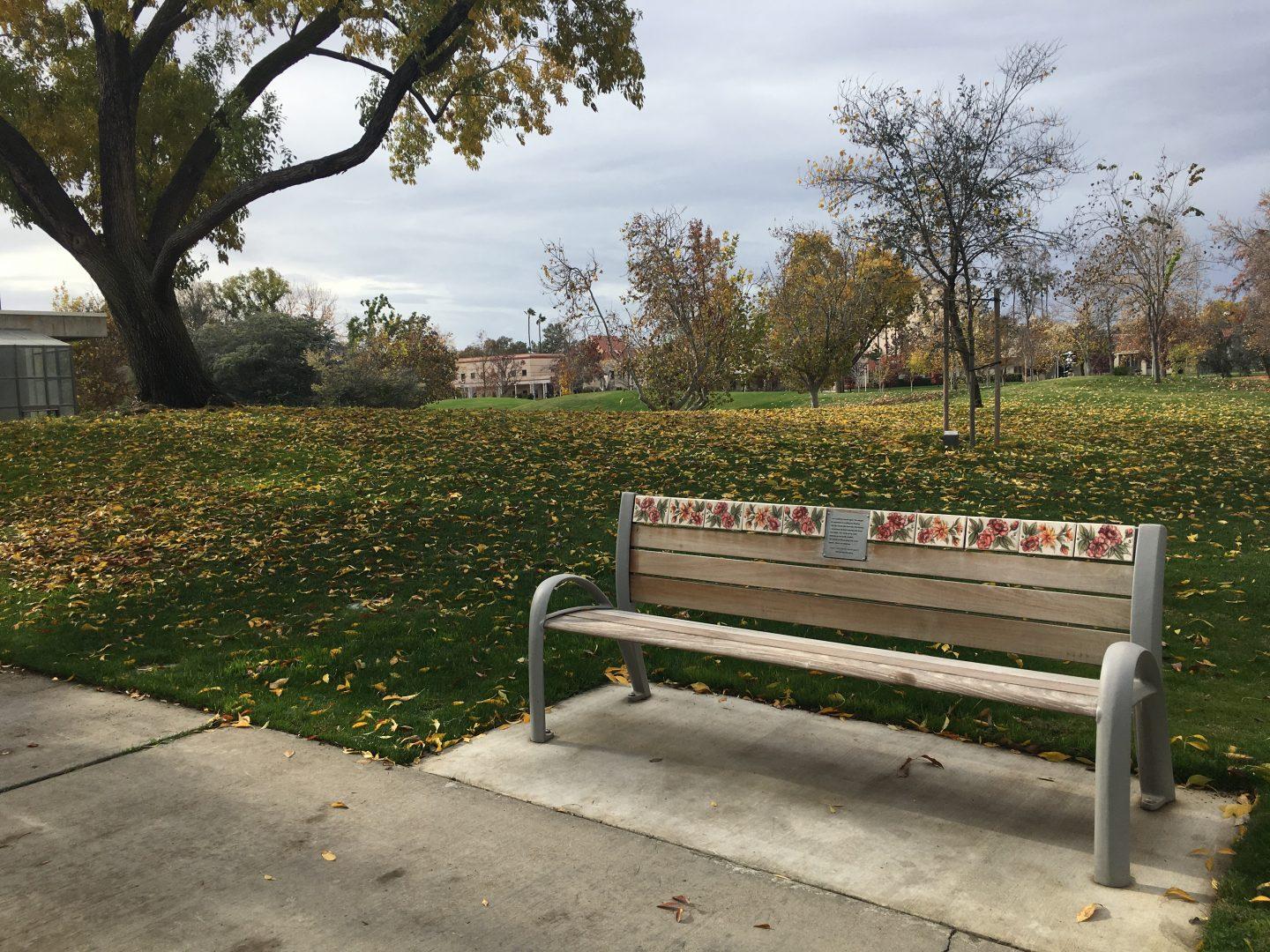Mireyda Barraza Martinez, once a Fresno State student who was better known as Mia, embodied a modern-day Chicana poet and activist hungry for progress, change and art.
Barraza Martinez grew up in East Porterville, a low-income community with just over 7,000 people. The unincorporated area in eastern Tulare County is infamous for having been greatly affected by the recent drought. Issues that likely provided inspiration for Barraza’s work.
“She had a lot of passion for the real world and for real community work,” said Jefferson Beavers, English department communications specialist.
Tragically, Barraza Martinez died in a car crash at age 29 on Nov. 20, 2016.
“It was, and still is, a big blow to us,” said Beavers.
Even after her death, Barraza Martinez remains everlasting through her radical poetry and its unique Latina perspective.
Barraza Martinez’s experiences transcended into her own work and persona. But those who knew her say that her background didn’t define her. Instead, it refined her into the empowered young woman who once walked through the halls of Fresno State.
“She did everything with conviction, and I think this is apparent in all of her art and activism. It all comes from a proud heart, but also a heart of humility,” said Monique Quintana, Fresno State alumna and close friend of Barraza Martinez.
Today, a student can find peace near a Valley Oak tree and can rest upon a custom bench, both of which are located on the west lawn outside the Conley Art auditorium in memory of Barraza Martinez.
The bench features handmade tiles, derived from Barraza Martinez’s art, by Una Mjurka, an assistant professor in the department of art and design.
A plaque lies in between the tiles with lines from Barraza Martinez’s poem, “I am suddenly myself again,” from her manuscript “Brown Girl Noise.”
Barraza Martinez was a graduate student in the Master of Fine Arts program, just a few months shy of graduating. She was also a graduate teaching associate in the English department and a graduate assistant in the Laureate Lab Visual Words Studio.
But Barraza Martinez did more than just put words on paper; she was a prominent figure in the Central Valley for her work as an activist for immigrant rights.
She was very involved in marches for immigrant rights, Beavers said. Her parents were farmworkers, and Barraza Martinez and her sisters worked in the fields seasonally.
“For a project in one of our graduate courses, we were asked to share about our vision as writer artists. I remember Mia saying that she most wanted to be known for her politics and how proud she was of her people,” said Quintana.
Barraza Martinez was multifaceted, often describing herself as “poeta,” “campesina” and “xicana.”
“She was on a trajectory to have a very successful life in poetry and writing, in addition to her teaching and activism,” said Beavers.
Barraza Martinez often carried a notebook with her to jot down her daily interactions and activities, according to Quintana. She knew her openness to learning was conducive to building a community.
“Pretty quickly after this happened [Barraza Martinez’s passing], lots of folks wanted to find ways to honor her. She meant a lot to a lot of people,” said Beavers.
One of those people was Dr. Magdalena Gilewicz, professor of English and director at the writing center. Barraza Martinez had been a longtime tutor at the center, and according to Beavers, Gilewicz had the idea to plant a tree in her honor.
Immediately, they had an outpouring of support from staff and students. Beavers knew they wanted to do something much bigger.
And so they did.
On Dec 9, 2017, a dedication ceremony was held in honor of Barraza Martinez. Her family was posthumously awarded her master’s degree in May 2018 during the College of Arts and Humanities Convocation.
“Brown Girl Noise” wasn’t always the title of her manuscript. It was a theory developed by Barraza Martinez, according to Quintana, her friend.
“She created a theory called ‘Brown Girl Noise,’ in which she examined the ways in which brown women were labeled as agitators when they articulated their thoughts, criticisms and desires in academic, creative, personal and other politically charged spaces,” said Quintana.
Beavers remembers Barraza Martinez as the person who invited him to share his own work.
He recalled a time she stood by the door of his office, introducing herself and asking what kind of work he had been doing.
Beavers, at the time, didn’t have many personal writing projects, rather just blogs and work-related writing.
“She said something to me that I’ll never forget, and to me it really encapsulates the person that she was: ‘When you hit a productive period, you’re welcome to join us any time for workshop,’” said Beavers.
However, for Beavers it was more than just an invitation, it was a gift. It was Barraza Martinez giving Beavers the encouragement to do what he should be doing, he said.
“To me, that is the person that Mia was: incredibly selfless, incredibly giving, incredibly encouraging,” Beavers said.
Quintana longs for the powerfulness held in solitude by Barraza Martinez.
“I miss the quiet things about her physical presence, like finding her sitting alone in the Red Wave Bar, reading Galeano, or seeing her ride her bike down the sidewalk early in the morning,” Quintana said. “She found a lot of joy in those moments of solitude, and I think that’s a powerful thing, to be alone.”




